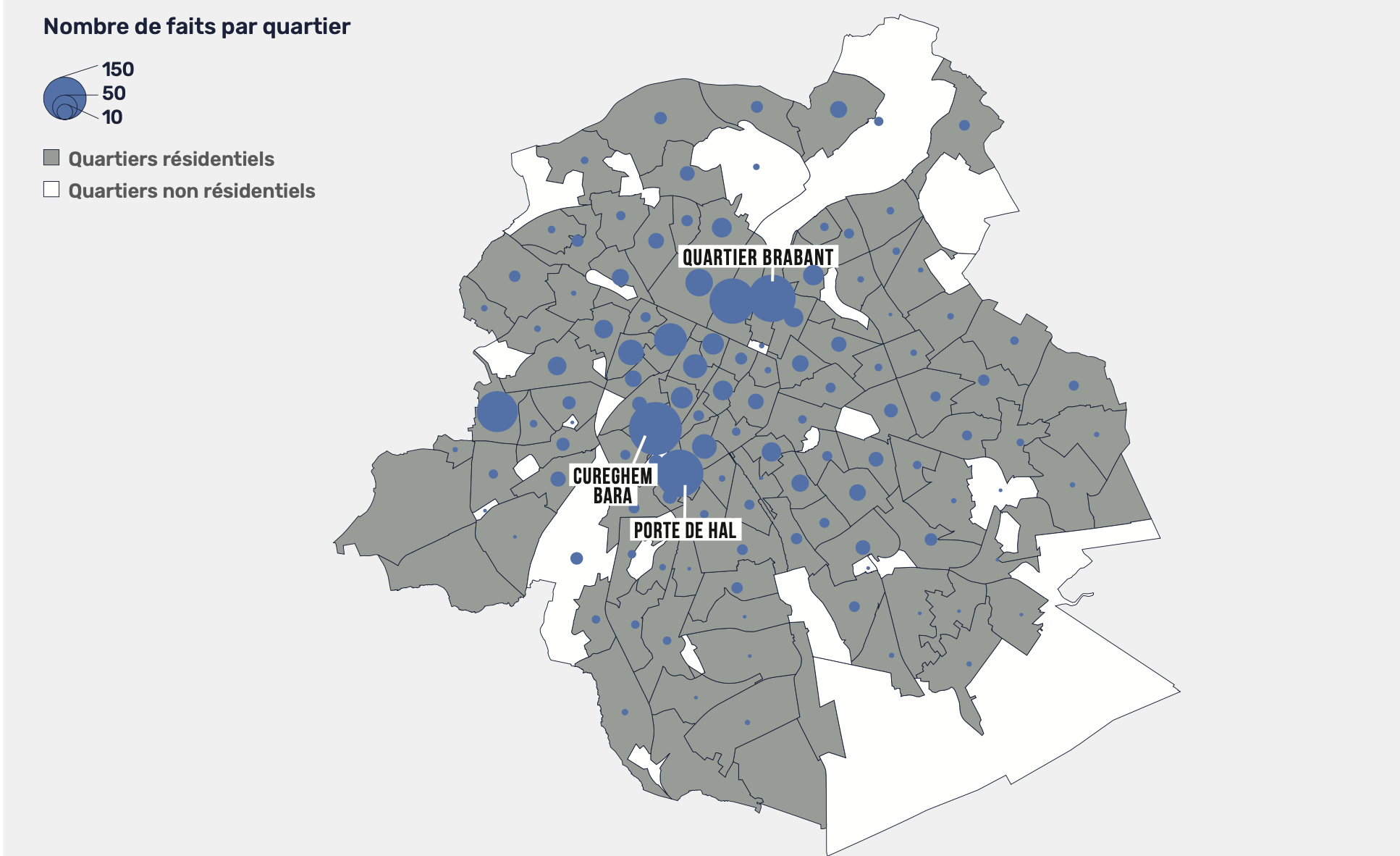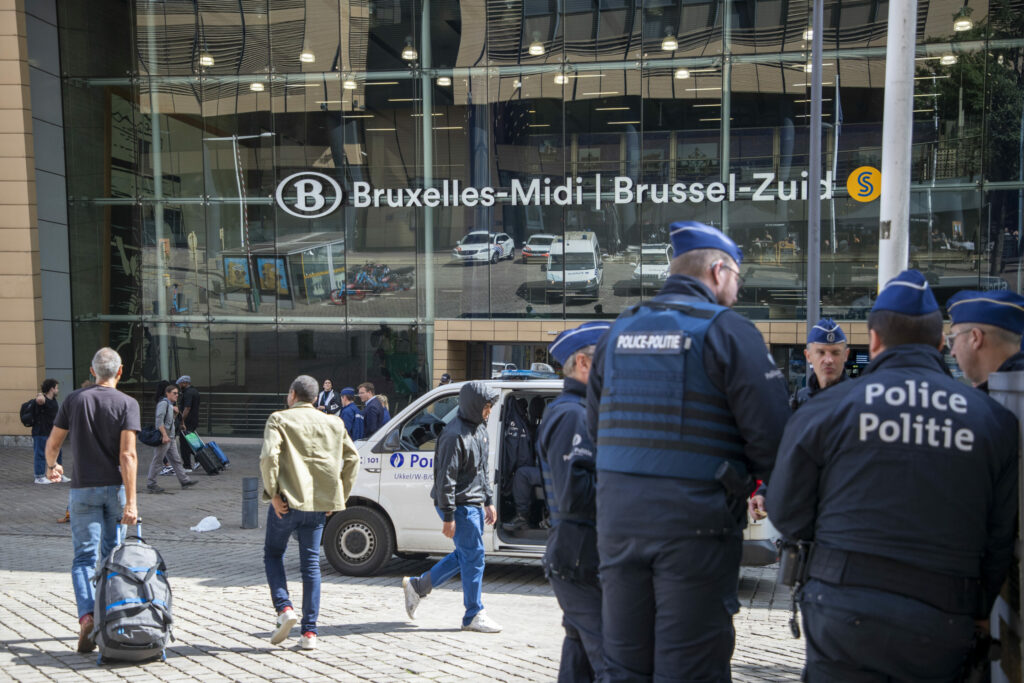The number of drug trafficking offences registered by police in Brussels has increased by more than a quarter between 2022 and last year. The drug trafficking hotspots are located near Brussels North and South railway stations.
Brussels police forces registered 1,977 drug trafficking offences in 2023, amounting to at least five official reports per day. This marks a 26% increase compared to 2022, the annual survey of the Brussels Observatory, part of the regional security and prevention service safe.brussels, noted, and a 76% increase compared to 2015.
"Most drug trafficking offences are registered in the districts of Cureghem Bara and Porte de Hal [both near the Brussels-Midi railway station] and Quartier de Brabant [near Brussels North railway station]," the report read.

Police-recorded drug trafficking offences in Brussels neighbourhoods. Credit: safe.brussels
These three neighbourhoods are also included in the list of 15 hotspots announced by the regional government as part of a new method to fight the drug violence in Brussels. These also include Chaussée d'Anvers, Matongé, Yser, Querelle, Versailles, Clémenceau, Peterbos, Saint-Antoine, Étangs Noirs, Ribaucourt, Bonnevie and the Rue de la Colonne/Rue de la Borne. Here, police carry out targeted actions.
More than one-fifth (22%) of all official reports for drug trafficking in Belgium come from one of the 19 Brussels municipalities.
Lack of punishment
Drug trafficking was in third place when it comes to the top three drug and alcohol offences recorded by police in the Brussels-Capital Region last year. In first place was drug possession – officers recorded 6,328 offences in which people were caught in the possession of narcotics – followed by public drunkenness (2,402 offences).
The number of offences related to public drunkenness decreased compared to 2022 (-10%) but has increased by 12% since 2015.
The Brussels Public Prosecutor's Office also saw an increase in the number of drug-related cases. It received 1,723 files on drug trafficking last year, an increase of 16% compared to 2022 and up by 64% compared to 2015.
However, just 27% of cases led to prosecution, while in 5%, the court sought "alternative measures". More than half the cases of drug trafficking (58% or 680) were closed without criminal consequences.
Cases were settled without criminal prosecution if there was a lack of evidence, but it also happened for reasons of opportunity, meaning the judge ruled that the case was not a priority, mostly because the impact on society was deemed too small.
Related News
- 'More cooperation needed', says Minister at opening of Brussels-Midi police station
- Antwerp drug violence at all-time high: 91 incidents already this year
Drug possession is not prosecuted in more than half of the cases. The hotspots for drug use and possession were more spread out: these include the areas around Brussels-Midi and North stations, but also the city centre and Quartier Royal.
Meanwhile, the majority of cases related to laughing gas are centred in the north of Brussels, specifically in the Quarties de Quais, Quartier de Brabant and around the Atomium.

